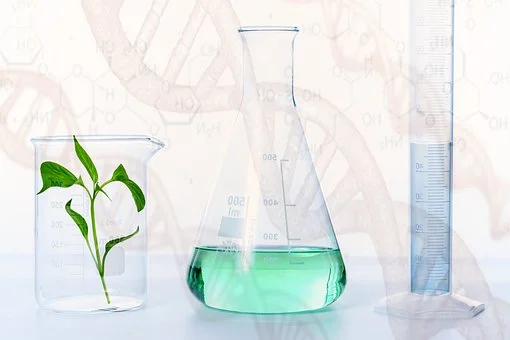Organic activists would like you to believe their brand preexists in nature the way fresh air and clean water do.
It does not.
Organic food only exists because we have come up with a legal framework by which to define it; a mind-numbing legal framework… just ask any organic farmer who’s behind on his paperwork.
If we were to decide tomorrow that certain GMOs would be acceptable as organic, as President Clinton suggested, we could rewrite the law. Or we can leave things the way they are, embroiled in controversy. It’s up to humans to define what “organic” means, either way.
Then there’s the notion that GMOs “contaminate” organic crops, as if we’re talking about dumping effluents into a pristine stream full of brook trout.
We’re not. We’re talking about politics, plain and simple.
GMOs are completely safe. So if politicians should ever decide to agree that GMOs actually “contaminate” organic crops, it will be a political decision to devise a legal construct saying so, not a scientific decision.
So why is the idea of GMO contamination embraced so fervently by organic activists?
Simple. Their aim is to sideline agricultural genetic engineering, and thereby prevent GMO farming from moving forward.
Yes, the USDA National Organic Program does stipulate how and when organic crops can become contaminated by synthetic pesticides. But there is nothing in America’s or Canada’s standards that explains how GMOs “contaminate” an organic crop. Organic farmers are only prevented from making use of GMOs due to a political aversion to this science that exists in urban organic circles.
Let’s be clear. Not a single organic crop anywhere in America or Canada has ever been decertified as a result of pollen or plant-material drifting onto it from a GMO crop.
Not one.
And yet, even the proponents of GMO farming have come to believe that GMOs contaminate organic crops, wondering how they can help prevent it and, most absurdly, how to insure organic farmers against it.
Apocryphal stories abound of “organic shipments being rejected by buyers” who, we are told, insist on absolute genetic purity. But 43 percent of American organic food tests positive for prohibited pesticides, a number that’s even higher in Canada. Why, don’t organic buyers ever reject those loads?
Simple. Organic stakeholders no longer care about synthetic pesticides or synthetic fertilizer, even when used fraudulently by organic farmers. They have concluded, erroneously, that the only way forward for organic farming is to ban all new GMO crops.
Nice try, but the jig is up. And no … it is not “inflammatory” or “mean-spirited” to point any of this out. It’s the law.
Organic standards were written by organic stakeholders, so there is absolutely no excuse for ignoring them. There’s been peaceful coexistence between organic and GMO farmers since GMOs were first introduced two decades ago. And there is, in point of fact, no basis for a GMO free definition of organic. The whole premise of being organic is, after all, pure artifice from start to finish.
The time has come to stop organic activists from creating controversy where none exists. We should strengthen the peaceful coexistence that has always existed between organic and GMO farmers wherever GMOs are grown, and look forward to the day when we might even see the world’s first certified-organic, genetically-modified crop.
In fact, it would be mean-spirited to do otherwise.











